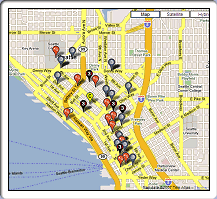The term net neutrality, unless you’re a tech geek, conjures up thoughts of fair trade, international policy or possibly anti-fishing zones. The root of this meaning, however, applies to all users of the internet whether that you’re an I.T. manager or the casual browser. To clarify the oft confusing technical jargon and slim it down to only the necessary information:
-
Definition: Net neutrality is not a law; it’s actually a principle that’s applied to residential broadband networks. What this means is that big business telecoms choose not to tier or limit internet website access allowing users full accessibility to the World Wide Web.
-
Internet Packaging: Imagine paying for internet packages similar to the way you pay for cable. You could have access to CBS.com or ABC.com but if you wanted CNN.com or MTV.com you’d have to pay a premium. Not a pretty picture is it? Fortunately, this is far from the truth and the possibility of this happening is slim to nil. This is something often used by social media websites such as Digg.com and Reddit.com to fan the flames for net neutrality.
-
Networks are “protecting” consumers: Yes, just like the MPAA is protecting movie goers from file sharing viruses and the music industry is trying to protect the artist. Fact is, if networks throttle the internet your protection is the last of their concern.
-
The 700 MHz wireless spectrum: Google took a large chunk of this spectrum effectively giving them the opportunity to provide free uninhibited access to users nationwide. The spectrum is used for broadband connection speeds and has been rumored for use on their new Android cell phone OS but could eventually be put to use as free WiFi.
-
Speed Throttling: ISP’s have recently began offering packages of higher speeds to customers who tend to use more bandwidth; namely gamers and downloaders. This allows those who use the internet for casual daily use to pay for a small and cheaper bandwidth package and charging users who use more bandwidth. This has been met with both criticism and praise from tech geeks and gamers alike, some claiming that limiting bandwidth is a bureaucratic solution while others say they would gladly pay for the added speed.
The REAL problem
With all this bickering about whom gets what and how much speed each user should get, most of us are missing the real issue. The infrastructure of the internet wasn’t meant to handle the large amounts of data currently being sent over the lines daily. Eventually the internet will run out of room, and with this problem the issue should be the solution to this. Inevitably, should the telecoms choose to upgrade the infrastructure the cost is going to be passed onto consumers, but protecting our basic rights now as advocates for net neutrality can keep us from getting gouged in the eye when that time comes.
* edit - thank you Sean T for pointing out the typo
Links of interest:
- Ethernet Whitepapers
- USA Business & Carrier Metro Ethernet
- Metro Wave Division Multiplexing, DWDM Services and DWDM/ROADM
- Business Phone Systems (external)
- International WAN & DIA Services
- Wholesale SIP Termination (carrier & enterprise)
If you found this page helpful, please support us linking to this page.
a WordPress rating system
- statistics on net neutrality
- net neutrality statistics
- People should know real facts
- neutrality fact
- network neutrality statistics
- must know internet facts
- five facts everyone should know
- facts about net neutrality
- fact about net neutrality
- everyone must know
No related posts.


{ 6 comments… read them below or add one }
I like how you have defined Net Neutrality you have done a good job and gave me a good laugh. Thanks!
The telecoms were already paid a large sum of money by the US government to help upgrade their infrastructure. To bad the money wasn’t used for that purpose.
bit-torrent was a garage-(billion-dollar-worth)-hack
to the reluctance of major ISPs (internet service provider) implementing
multicast … no bit-torrent, no problem.
“…keep us from getting gauged in the eye…”
Substitute “gauged” with “gouged” and your article will improve dramatically. Proofreading is your friend.
I liked your take on “The Real Problem”. I believe it is true when you say people are too caught up in how this effects them now. They need to look at the big picture and how things can change in the future.
Grammar errors aside, THE REAL PROBLEM is that we payed in taxes for the telecom infrastructure to be rebuilt from the ground up in the 90s, because the bandwidth issue was anticipated in advance. At the time, we were sold the concept of using video-phones to communicate over the proposed fiber-optic lines. Said taxpayer-funded facelift has yet to materialize.